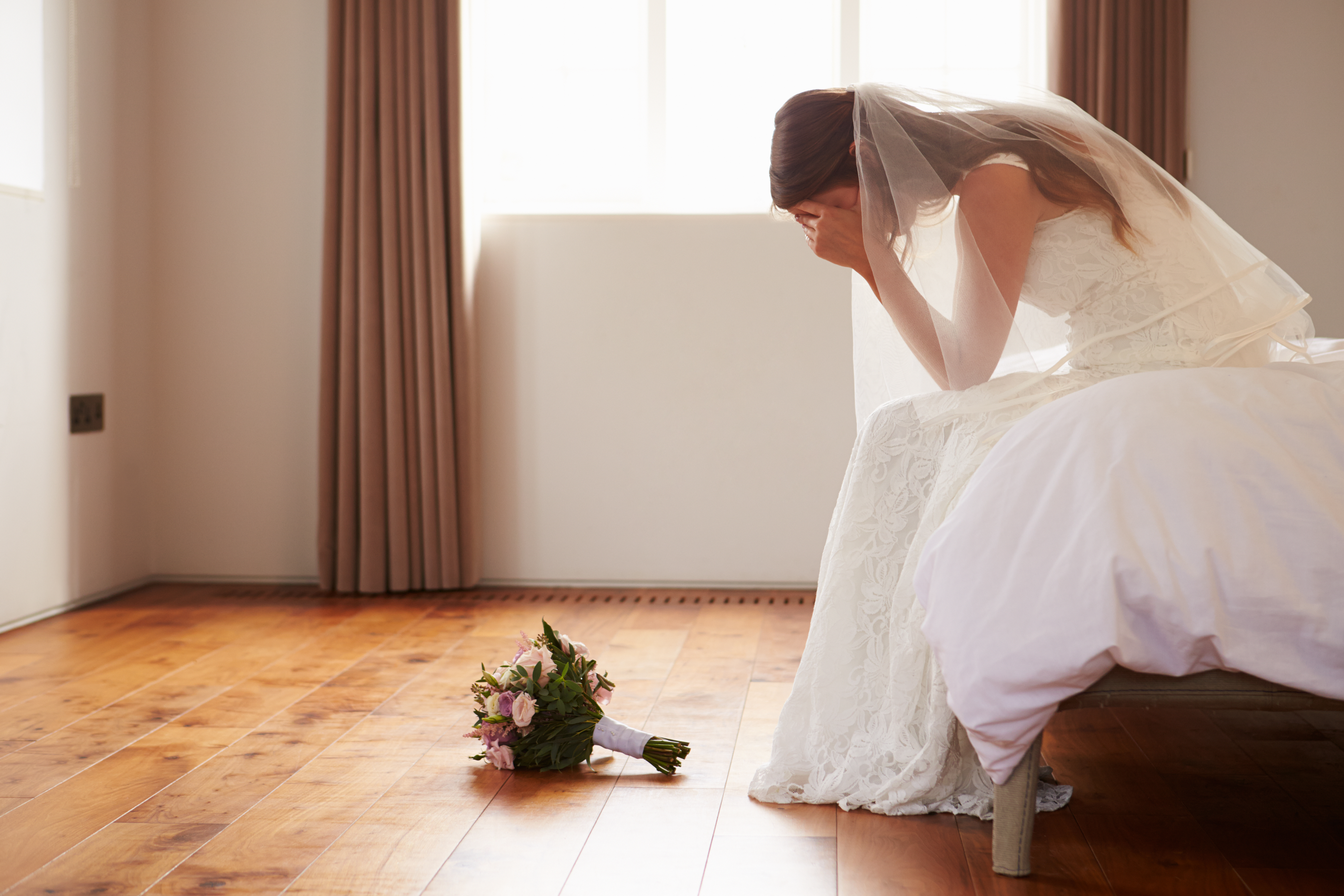The conservative theory of marriage just got blown apart
Take away the jobs, and marriage rates crash


A great fraction of conservatives and centrists in Washington, D.C., are obsessed with poor people's relative lack of marriage. They look at social dysfunction among the lower classes, conclude that it happens because they don't conform to bourgeois social norms, and then rig up some policy to bludgeon the poor into getting married (and staying in school, getting a job, and so on).
There's just one problem with this: It's completely backwards. Poor people are not irresponsibly refusing to settle down. In fact, as a new paper shows, economically insecure people are less likely to get married because of that insecurity. The whole center-right theory of marriage is nonsense.
The study was conducted by David Autor, David Dorn, and Gordon Hanson, and it examines marriage through the lens of young men. The negative effects of trade policy like NAFTA were highly concentrated in certain communities, as outsourcing crushed the job prospects of working-class men in factory towns. This gave the authors a sort of natural experiment to see what happens when the economic prospects of a community of young men plummet.
The Week
Escape your echo chamber. Get the facts behind the news, plus analysis from multiple perspectives.

Sign up for The Week's Free Newsletters
From our morning news briefing to a weekly Good News Newsletter, get the best of The Week delivered directly to your inbox.
From our morning news briefing to a weekly Good News Newsletter, get the best of The Week delivered directly to your inbox.
They found that marriage fell and single parenthood rose. They explain this through a variety of factors: First, prolonged joblessness led to alcohol and drug abuse in young men, killing some and leading to homelessness and incarceration in others. Second, jobless or precariously employed men make far less attractive marriage material — for one thing, living with another person who has no stable source of income is a large economic risk, especially for someone who is in an unstable situation; for another, prolonged joblessness often leads to depression, anxiety, or anger problems. The authors reasonably assume there are some women who prize marriage and others who prize having children; hence if the supply of marriage-worthy men plummets, marriages will fall but some women will simply opt to have kids out of wedlock.
There is a lot more nuance in the whole study, but the bottom line is that it is the economics driving the particular trend here, not poor people making bad decisions.
All this flies in the face of the years-long lanyard crusade to get poor people to marry. Take Bill Clinton's welfare reform, for instance. People most often discuss its stipulations designed to force poor people to work more. However, the law was also designed to push people into marriage. Indeed, the very first sentence of the bill states that "marriage is the foundation of a successful society," foreshadowing other sections ostensibly written to reduce single motherhood.
Both the labor market and the marriage objectives of welfare reform were abysmal failures. Marriage has been in secular decline for decades, both in the U.S. and in peer nations, a trend which was not affected by the policy in the slightest. In fact, precisely none of the many marriage promotion experiments and policies have had even a whisper of the intended effect.
A free daily email with the biggest news stories of the day – and the best features from TheWeek.com
Why? Undoubtedly the rise of feminism and sexual liberation has had a major impact here. The social pressure pushing young people to get married to someone, anyone used to be immensely stronger than it is. But today, happiness, decent treatment, and mutual emotional support are something generally expected in a marriage, and rightly so (though no doubt there is still some distance to go). The smaller proportion of married people in their early 20s surely represents a lot of people avoiding horrible situations and abuse.
That's why policy ought to be relatively neutral on marriage. When it goes well, it really can be the foundation of a great life. But when it doesn't, it can be hell on Earth. Given evolving cultural expectations, the government ought to concern itself with enabling people to choose marriage of their own free will. And in that vein, egalitarian economic policy is very obviously the policy tool of choice. It's all but impossible to push against changing cultural expectations about relationships. But what we can do is make sure there are jobs for everyone that wants one, and that they are well paid; that there is a strong welfare state to make sure everyone gets health care and at least a reasonable income; that everyone has decent housing, and so on. With more people living better lives, and the risk of living together greatly decreased, we might well achieve the goal of more marriages — only this time ones freely chosen, not economically coerced.
But if we allow jobs to vanish and do nothing to replace them, while simultaneously insisting that whatever bad happens is the fault of the poor themselves, the result will be desperation, addiction, suicide, and more single parents.
Ryan Cooper is a national correspondent at TheWeek.com. His work has appeared in the Washington Monthly, The New Republic, and the Washington Post.
-
 The best dark romance books to gingerly embrace right now
The best dark romance books to gingerly embrace right nowThe Week Recommends Steamy romances with a dark twist are gaining popularity with readers
-
 The ocean is getting more acidic — and harming sharks’ teeth
The ocean is getting more acidic — and harming sharks’ teethUnder the Radar ‘There is a corrosion effect on sharks’ teeth,’ a study’s author said
-
 6 exquisite homes for skiers
6 exquisite homes for skiersFeature Featuring a Scandinavian-style retreat in Southern California and a Utah abode with a designated ski room
-
 The billionaires’ wealth tax: a catastrophe for California?
The billionaires’ wealth tax: a catastrophe for California?Talking Point Peter Thiel and Larry Page preparing to change state residency
-
 Bari Weiss’ ‘60 Minutes’ scandal is about more than one report
Bari Weiss’ ‘60 Minutes’ scandal is about more than one reportIN THE SPOTLIGHT By blocking an approved segment on a controversial prison holding US deportees in El Salvador, the editor-in-chief of CBS News has become the main story
-
 Has Zohran Mamdani shown the Democrats how to win again?
Has Zohran Mamdani shown the Democrats how to win again?Today’s Big Question New York City mayoral election touted as victory for left-wing populists but moderate centrist wins elsewhere present more complex path for Democratic Party
-
 Millions turn out for anti-Trump ‘No Kings’ rallies
Millions turn out for anti-Trump ‘No Kings’ ralliesSpeed Read An estimated 7 million people participated, 2 million more than at the first ‘No Kings’ protest in June
-
 Ghislaine Maxwell: angling for a Trump pardon
Ghislaine Maxwell: angling for a Trump pardonTalking Point Convicted sex trafficker's testimony could shed new light on president's links to Jeffrey Epstein
-
 The last words and final moments of 40 presidents
The last words and final moments of 40 presidentsThe Explainer Some are eloquent quotes worthy of the holders of the highest office in the nation, and others... aren't
-
 The JFK files: the truth at last?
The JFK files: the truth at last?In The Spotlight More than 64,000 previously classified documents relating the 1963 assassination of John F. Kennedy have been released by the Trump administration
-
 'Seriously, not literally': how should the world take Donald Trump?
'Seriously, not literally': how should the world take Donald Trump?Today's big question White House rhetoric and reality look likely to become increasingly blurred
